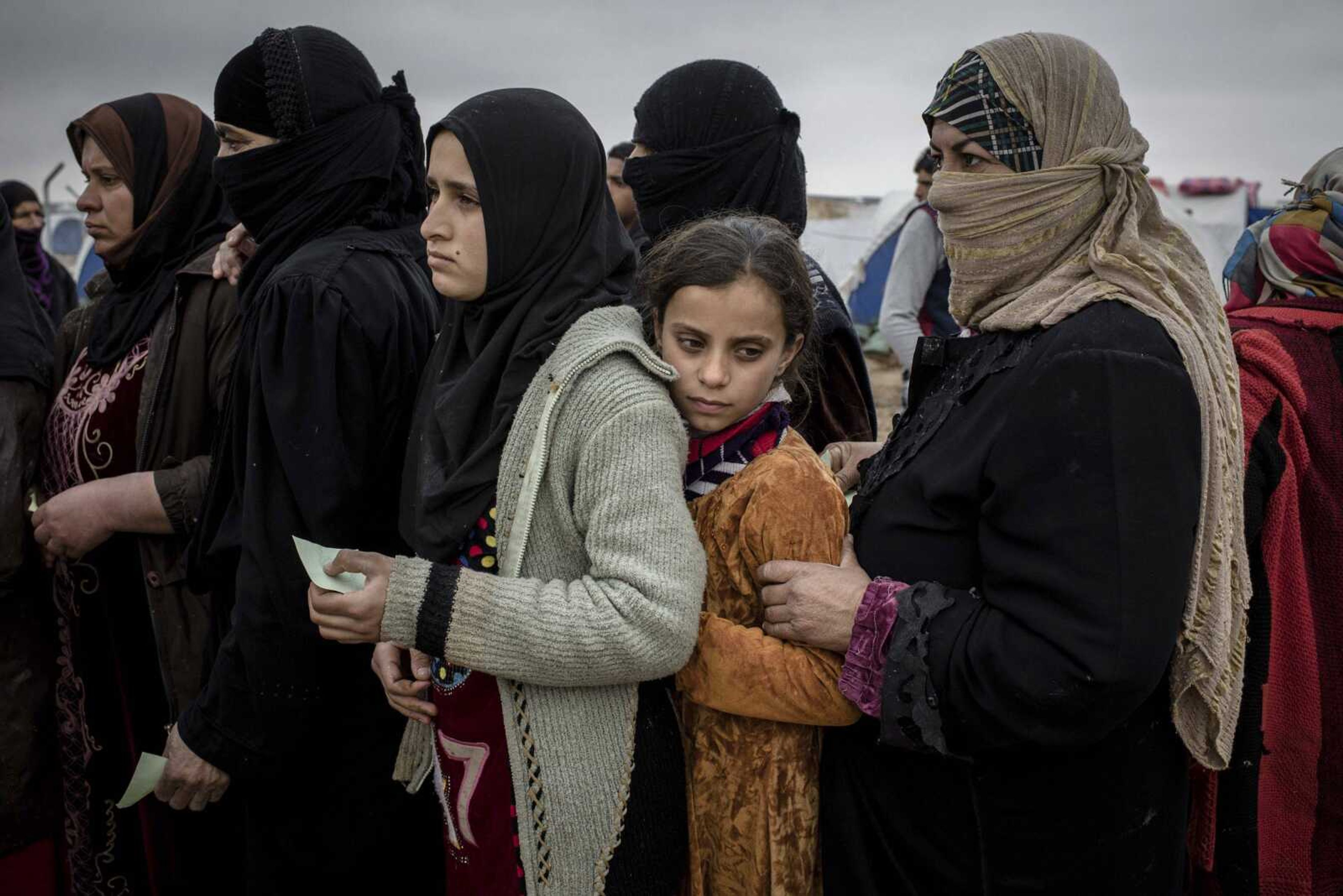Rain, cold cause misery for Iraq's displaced
QAYARA, Iraq -- The mud was three inches deep in parts of the Madrag Camp for displaced Iraqis after the heavy overnight downpour. Water seeped into the blue-and-white tents, soaking families sleeping inside. Mahmoud Mohammed Mussa spent the morning sweeping out rainwater from the tent where he lives with his two wives and 10 children after a miserable night, unable to go back to sleep...
QAYARA, Iraq -- The mud was three inches deep in parts of the Madrag Camp for displaced Iraqis after the heavy overnight downpour. Water seeped into the blue-and-white tents, soaking families sleeping inside.
Mahmoud Mohammed Mussa spent the morning sweeping out rainwater from the tent where he lives with his two wives and 10 children after a miserable night, unable to go back to sleep.
His wives went about cooking a lunch of koba, a fried pastry filled with minced beef and onions.
"Rain is our chief enemy," declared Ahmed Ibrahim, a friend standing with Mussa outside the tent. "There is no solution except for the sun to shine on us again."
Madrag, also known as the Qayara Base Airstrip Camp, is home to about 2,500 families who fled Mosul and a string of towns and villages west of the city.
They are among about 120,000 who have been forced from their homes since the military launched its campaign in mid-October to retake the northern city from the Islamic State group.
They've reached safety in camps in Nineveh province and in Iraq's Kurdish self-rule zone.
But rain and punishing winter weather -- temperatures hovered just above freezing Wednesday night -- are making their lives miserable.
In the Madrag Camp, the displaced Iraqis also complained of the scarcity of clean drinking water and medication for chronic diseases such as diabetes and high blood pressure.
They said the heating oil they are given is not enough.
"We were last given 20 liters of heating oil 17 days ago. That was enough for just two or three days," said Ahmed Aziz, a 35-year-old from Makhmour, north of Mosul.
"Everything in our tents was soaked," said Khedr Ibrahim, 45, who fled fighting in Tal Abta, a town west of Mosul, with his wife and 10 children nearly three weeks ago. "Life is difficult here, but thanks be to God, we are safe here, and God willing, we will go home soon."
The camp's grounds were under a treacherous layer of mud Wednesday. Residents were forced to cross canals of sewage water on slippery wood planks barely a foot wide.
Almost everyone's clothes were muddied.
Too poor to afford shoes, many wore plastic sandals, with mud caking their feet and toes.
Those whose tents were invaded by rainwater begged relief workers to spare them some of the cardboard boxes in which supplies arrive so they could use them to cover the floor.
Also Wednesday, women and men representing 500 newly arrived families queued separately for about three hours under a threateningly cloudy sky to receive supplies from the Iraqi Red Crescent.
These included blankets, plastic sheets, food, metal tea pots, utensils and detergents.
Camp officials said efforts are underway to secure more clean drinking water.
The women, who mostly covered their faces, cut forlorn figures, standing patiently in line as some dozen Red Crescent workers aided by camp children prepared for the distribution.
But the grim faces turned into smiles and excitement as they, aided by male members of their families, began to pick up the gray blankets, mauve fuel cans and other relief supplies.
Small children, meanwhile, gathered in circles around Red Crescent workers who organized games for the boys.
Girls were asked to sing a song they knew.
"Laila, Laila, why are you crying?" sang a small girl in red top and matching pants. "Laila, Laila, tell me what happened."
Connect with the Southeast Missourian Newsroom:
For corrections to this story or other insights for the editor, click here. To submit a letter to the editor, click here. To learn about the Southeast Missourian’s AI Policy, click here.









